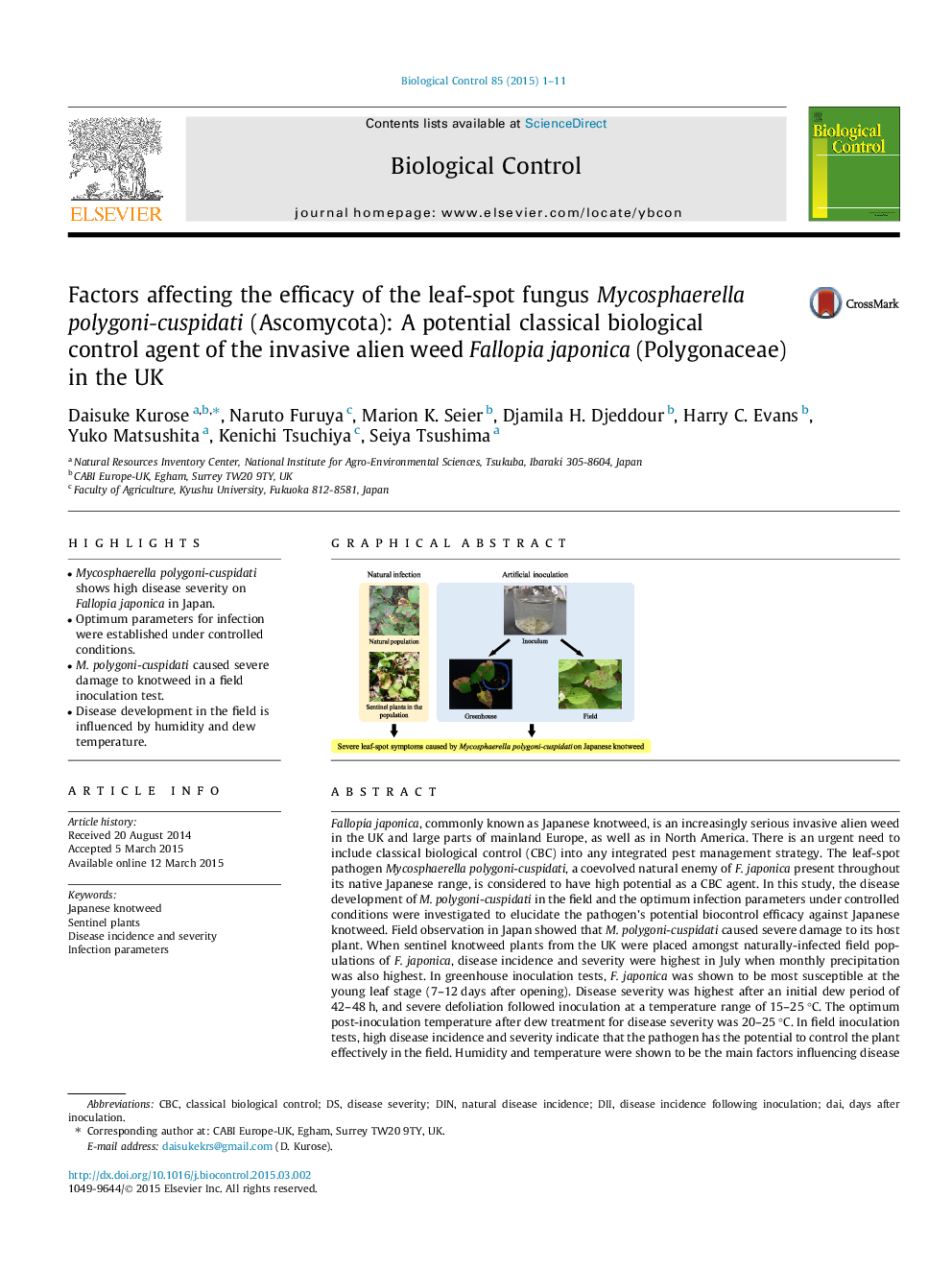| کد مقاله | کد نشریه | سال انتشار | مقاله انگلیسی | نسخه تمام متن |
|---|---|---|---|---|
| 4503799 | 1624249 | 2015 | 11 صفحه PDF | دانلود رایگان |

• Mycosphaerella polygoni-cuspidati shows high disease severity on Fallopia japonica in Japan.
• Optimum parameters for infection were established under controlled conditions.
• M. polygoni-cuspidati caused severe damage to knotweed in a field inoculation test.
• Disease development in the field is influenced by humidity and dew temperature.
Fallopia japonica, commonly known as Japanese knotweed, is an increasingly serious invasive alien weed in the UK and large parts of mainland Europe, as well as in North America. There is an urgent need to include classical biological control (CBC) into any integrated pest management strategy. The leaf-spot pathogen Mycosphaerella polygoni-cuspidati, a coevolved natural enemy of F. japonica present throughout its native Japanese range, is considered to have high potential as a CBC agent. In this study, the disease development of M. polygoni-cuspidati in the field and the optimum infection parameters under controlled conditions were investigated to elucidate the pathogen’s potential biocontrol efficacy against Japanese knotweed. Field observation in Japan showed that M. polygoni-cuspidati caused severe damage to its host plant. When sentinel knotweed plants from the UK were placed amongst naturally-infected field populations of F. japonica, disease incidence and severity were highest in July when monthly precipitation was also highest. In greenhouse inoculation tests, F. japonica was shown to be most susceptible at the young leaf stage (7–12 days after opening). Disease severity was highest after an initial dew period of 42–48 h, and severe defoliation followed inoculation at a temperature range of 15–25 °C. The optimum post-inoculation temperature after dew treatment for disease severity was 20–25 °C. In field inoculation tests, high disease incidence and severity indicate that the pathogen has the potential to control the plant effectively in the field. Humidity and temperature were shown to be the main factors influencing disease expression and lesion development of M. polygoni-cuspidati in a field situation. These results provide valuable information for any future use of M. polygoni-cuspidati as a CBC agent for management of Japanese knotweed in the UK.
Figure optionsDownload as PowerPoint slide
Journal: Biological Control - Volume 85, June 2015, Pages 1–11